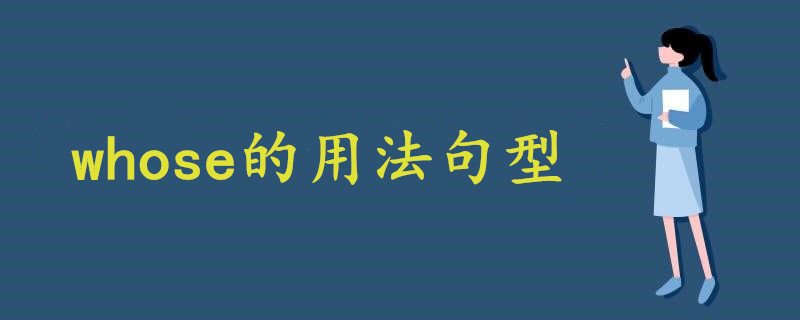whose的用法:可作疑问代词或连接代词,中文翻译为“谁的”,可用来指有生命的人,其后常接名词;whose还可作关系代词,中文翻译为“那个人的”、“那些人的”,既可指人,也可指物,引导限制性或非限制性定语从句。

whose的基本含义及用法介绍
whose作为代词,基本含义有(用于问句)谁的;(特指)那个人的,那一个的,其;进一步提供信息时用。例句有:
1、Whose house is that?
那是谁的房子?
2、I wonder whose this is.
我不知道这是谁的。
3、He's a man whose opinion I respect.
他是我尊重其意见的人。
4、Isobel, whose brother he was, had heard the joke before.
伊泽贝尔,就是他的兄弟,以前曾经听说过这个笑话。
5、I saw a man shouting at a driver whose car was blocking the street.
我看见一个男人正朝一个司机叫嚷,他的车把街道堵塞了。
6、Whose was the better performance?...
谁表演得更好?
7、I'm wondering whose mother she is then...
我很纳闷,那么她是谁的母亲呢?
8、I can't remember whose idea it was for us to meet again.
我记不清我们再次会面是谁的主意了。
9、It's the house whose door is painted red.
这就是那所门涂成红色的房子。
10、The documentary caused a lot of bad feeling, not least among the workers whose lives it described.
那部纪录片引起了许多人的反感,尤其是在片中描写到其生活的工人。










